

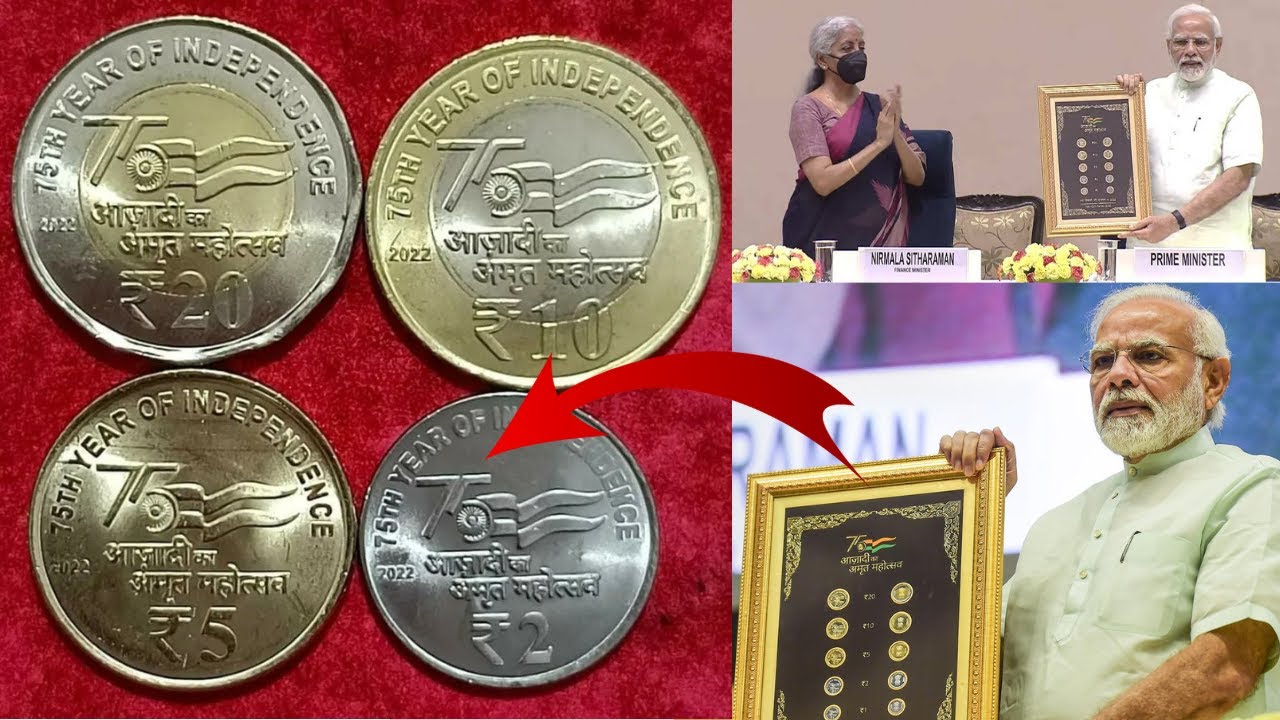
On Constitution Day, both the Prime Minister and President emphasized the significance of the Constitution in shaping India's progress and development. At the PMO and Supreme Court celebrations, officials and leaders reflected on the document's role in achieving social justice and inclusivity. The release of a special coin and stamp serves as a commemoration of the Constitution's 75 years of impact.
Constitution Day: A Reflection on India's Constitutional Journey
Constitution Day, celebrated annually on November 26, marks the adoption of the Indian Constitution by the Constituent Assembly in 1949. This pivotal document has shaped the nation's progress and development for over seven decades.
Background
The Indian Constitution was drafted by the Constituent Assembly, a representative body elected to frame the nation's governing document. Dr. B.R. Ambedkar, the chairman of the drafting committee, played a key role in shaping its principles and provisions.
The Constitution came into effect on January 26, 1950, replacing the Government of India Act of 1935 and establishing India as a sovereign democratic republic.
Significance of the Constitution
The Indian Constitution is the foundation of the nation's legal and political system. It guarantees fundamental rights and freedoms to all citizens, establishes a framework for governance, and defines the relationship between the central and state governments.
The Constitution has played a vital role in India's progress. It has promoted social justice, inclusivity, and economic development. It has also safeguarded the rights of minorities, women, and marginalized groups.
Recent Celebrations
On Constitution Day 2023, the Prime Minister and President emphasized the importance of the Constitution in shaping India's future. At the PMO and Supreme Court celebrations, officials and leaders reflected on its role in achieving social justice and inclusivity.
The release of a special coin and stamp served as a commemoration of the Constitution's 75 years of impact.
Top 5 FAQs and Answers
1. Who drafted the Indian Constitution? Dr. B.R. Ambedkar
2. When was the Constitution adopted? November 26, 1949
3. What is the purpose of Constitution Day? To mark the adoption of the Indian Constitution and reflect on its significance in shaping the nation's progress.
4. What are some key principles of the Indian Constitution? Sovereignty, democracy, secularism, socialism, and federalism.
5. How has the Constitution contributed to India's development? By promoting social justice, inclusivity, and economic growth, and safeguarding the rights of citizens.
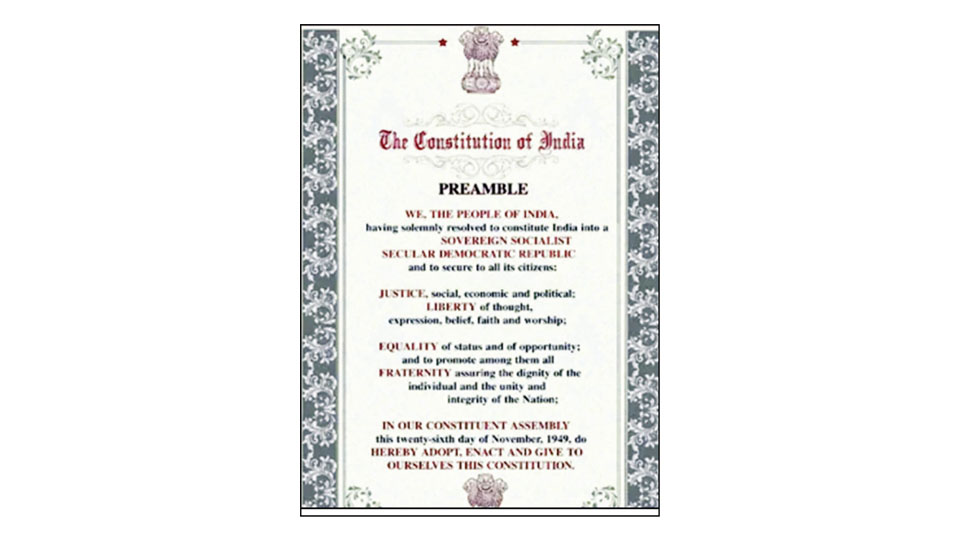
The Supreme Court has rejected three petitions seeking to delete the words 'secular' and 'socialist' from the Preamble of the Constitution of India. The Court stated that the power to amend the Constitution extends to the Preamble and that the words were inserted in 1976 during a national emergency. The Court also clarified that the terms 'secular' and 'socialist' do not restrict economic policies and reflect the State's commitment to equality and welfare. The petitions were filed by former BJP leader Subramanian Swamy, advocate Ashwini Upadhyay, and Balram Singh.
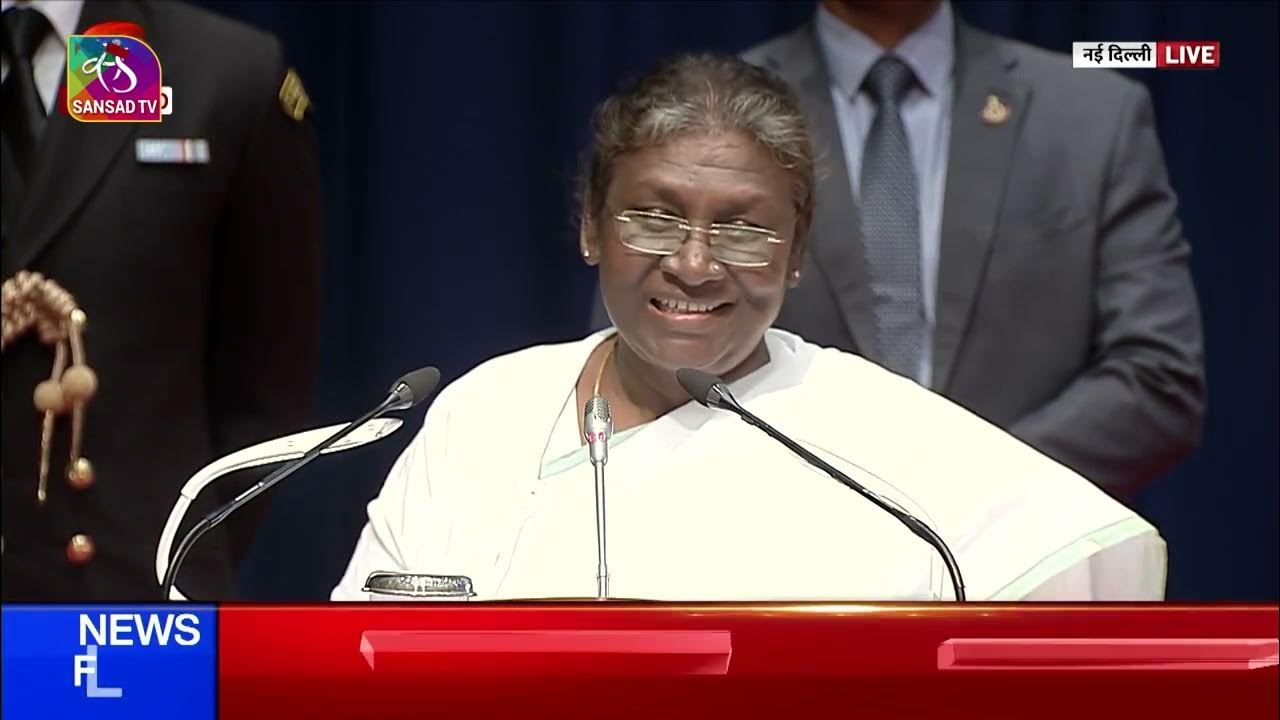
As India celebrates Constitution Day on November 26, President Droupadi Murmu delivered a joint address to both Houses of Parliament, marking 75 years of the adoption of India's Constitution. In her speech, she highlighted the government's efforts towards the welfare of all sections of society, especially the weaker sections. This day is observed every year as a tribute to Dr. B.R. Ambedkar, Chairman of the Drafting Committee of the Constitution, on his 125th birth anniversary.
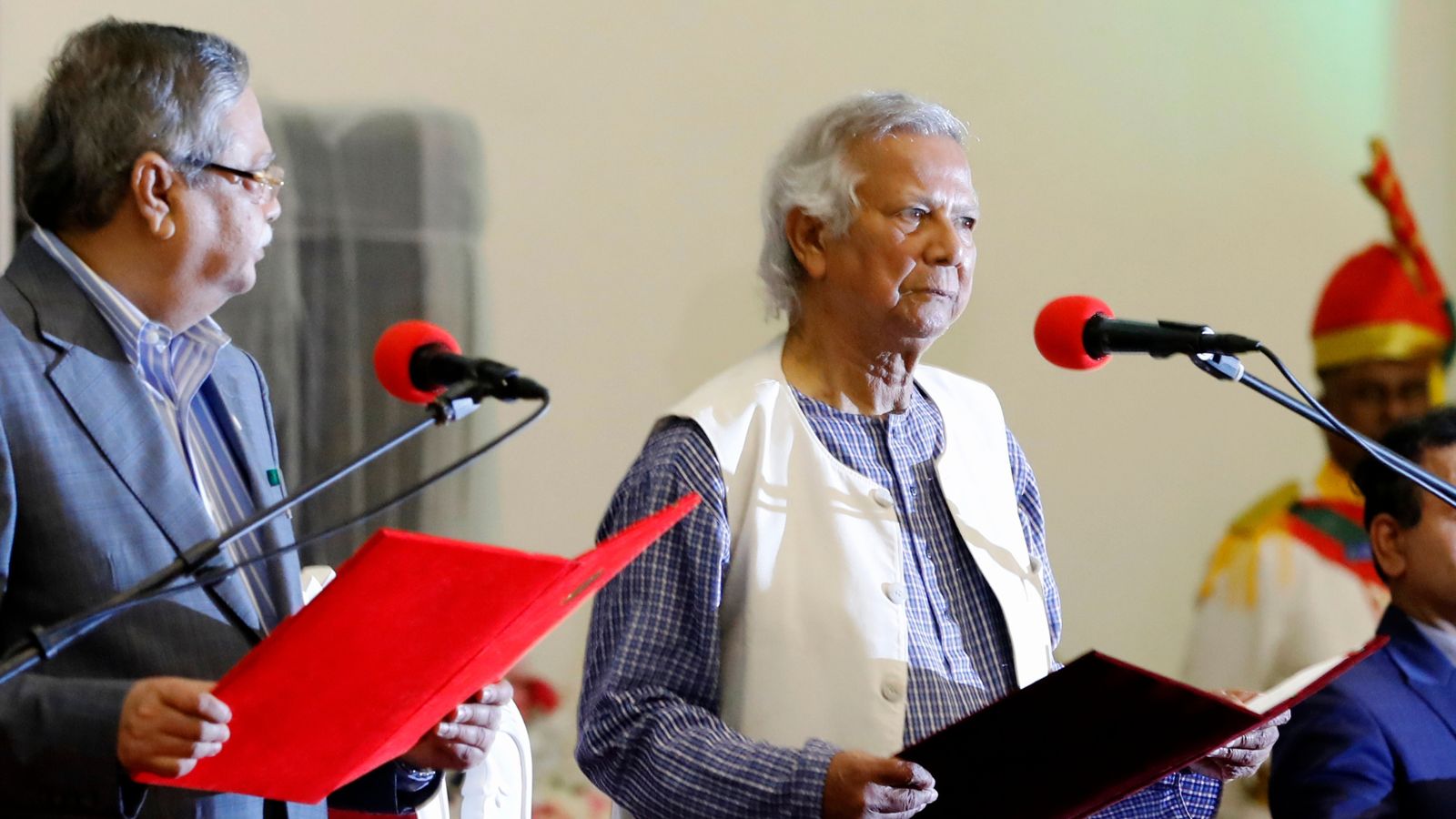
Bangladesh's chief advisor, Muhammad Yunus, has condemned the violent clashes that erupted over the arrest of a Hindu religious leader and ISKCON monk Chinmoy Krishna Das Prabhu. A public prosecutor was killed in the clash, prompting the government to order an investigation and increase security in Chittagong. The arrest of the monk, who is associated with a group advocating for the protection of Hindu minorities, has sparked outrage among his supporters.
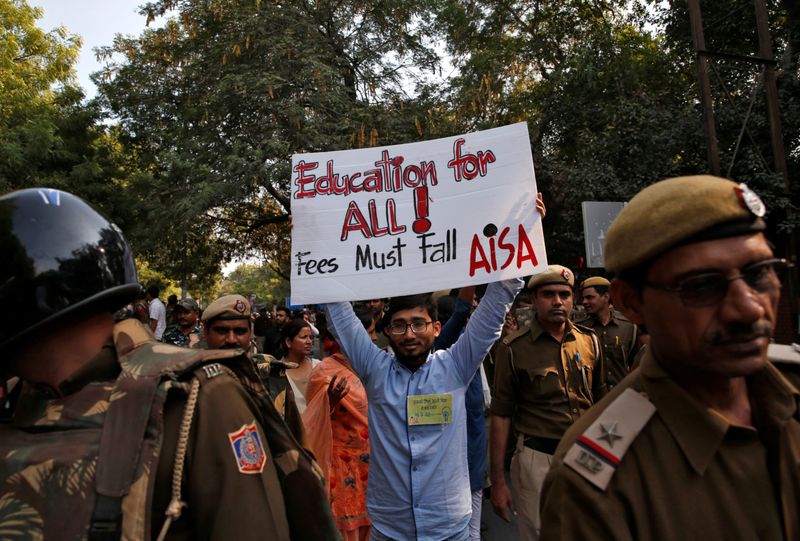
A protest was held in Himachal Pradesh's Hamirpur district against the planned shutdown of a charitable hospital managed by Radha Soami Satsang Beas in Bhota. The hospital, which has been operating since 2000 and serves over 100,000 people, is facing closure due to unresolved land transfer issues. Despite claims by the hospital administrator that the closure notice was issued by the sect's management, the state government has yet to guarantee the hospital will continue to operate. This move has caused concern among residents who rely on the free healthcare services provided by the hospital.

"Madhya Pradesh CM Invites Investors to State's Global Investors Summit, Highlights Development Progress Made Under PM Modi's Leadership" Madhya Pradesh Chief Minister Mohan Yadav attended an event in London, where he invited investors to the state's upcoming Global Investors Summit. In his address, CM Yadav highlighted the development work undertaken in the state, crediting the leadership of PM Modi. He also spoke about the various sectors in Madhya Pradesh, such as infrastructure and healthcare, that have seen significant progress under the government. With subsidies and incentives in place, CM Yadav emphasized that the state is ready to welcome investors and create a positive impact for both Madhya Pradesh and the country.
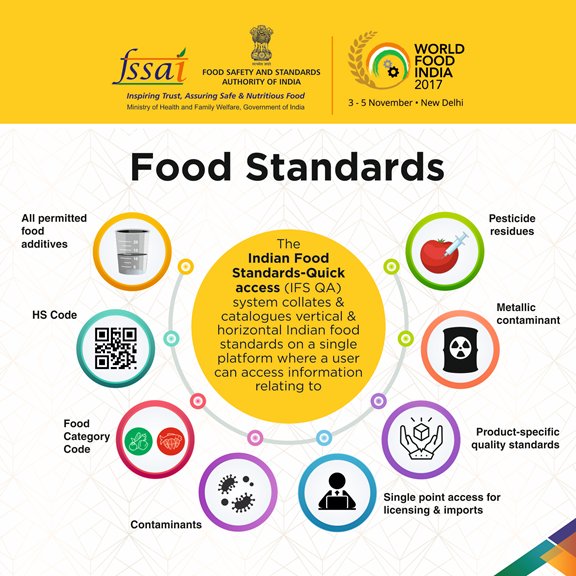
The Food Safety and Standards Authority of India (FSSAI) has rejected food consignments from various countries, citing concerns over food safety and quality. This decision highlights India's growing vigilance in regulating food imports and safeguarding public health. Stakeholders are urged to ensure compliance with safety norms to avoid similar rejections in the future. With increasing scrutiny on imported goods, the rejection of these consignments reflects the FSSAI's commitment to enforcing strict regulations and protecting consumer interests in the face of global supply chain challenges.

Chinmoy Krishna Das Brahmachari, a well-known Hindu leader in Bangladesh, has been arrested by the Detective Branch of Dhaka Metropolitan Police on charges of sedition. His arrest has sparked protests and drawn international attention to the ongoing religious tensions and discrimination against minorities in the country. Despite efforts by his legal team, he has been denied bail and transferred to jail. The Indian Ministry of External Affairs has also expressed deep concern over the incident and the treatment of minorities in Bangladesh.
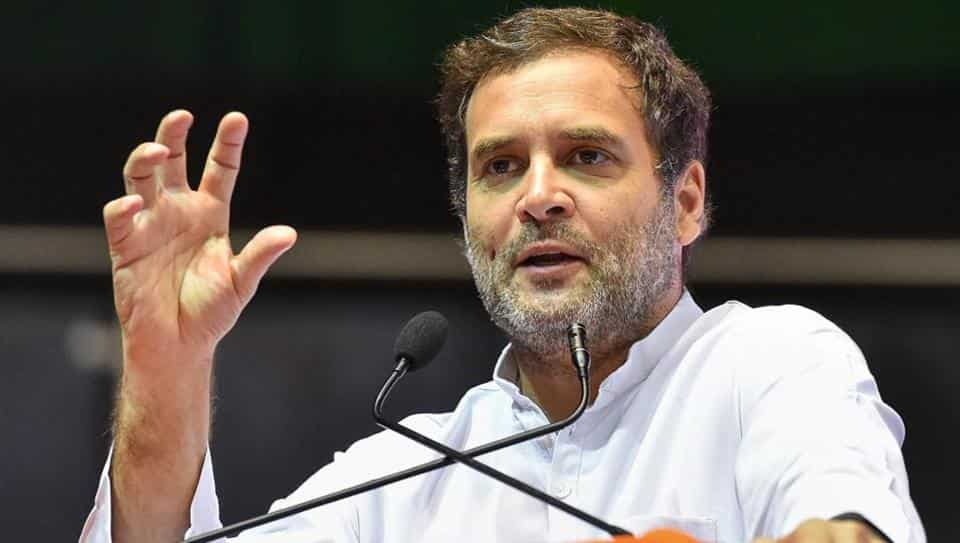
On Constitution Day, Congress leader Rahul Gandhi launched a scathing attack on Prime Minister Modi, accusing him and the RSS of working against the principles of the Indian Constitution. He stressed the importance of understanding and upholding its values, and reiterated Congress' commitment to conducting caste-based censuses in states where they are in power. Gandhi also highlighted the need for representation of marginalized communities in fields like education and media to dismantle systemic discrimination.
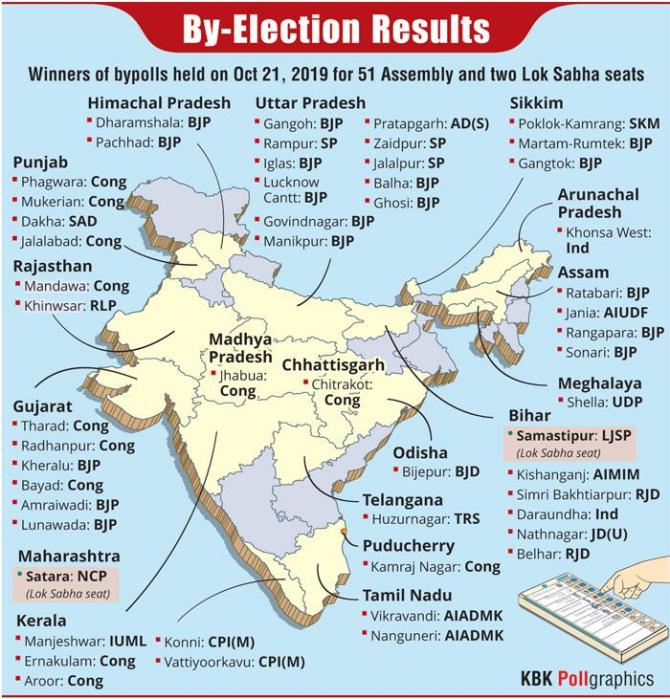
The results of the by-elections for nine assembly seats in Uttar Pradesh held on November 20 this week have been declared, with the NDA-BJP alliance securing a majority of seats. The ruling party’s dominance in the state has been reaffirmed with Chief Minister Yogi Adityanath attributing the victory to Prime Minister Narendra Modi’s leadership and their commitment to security, good governance, and public welfare. The Samajwadi Party’s win in the Sisamau seat has been the only exception to the BJP-RLD alliance’s success.